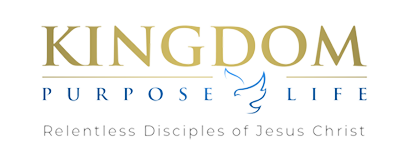Our family has a new and unusual tradition in the spring time of year. We have foregone Easter celebrations, turning instead to the celebration of Passover. Since we are not Jewish, we have dubbed this holiday as a Christian Passover.
Isn’t Passover and Easter the same thing? This question rings in my ears from curious and well-meaning Christians every spring. Honestly, it was never thought about until we had children and were determined to guard them carefully while we raise them up to be formidable warriors in the Kingdom of God. With that goal in mind, the question of American Easter traditions began to stir me with unavoidable contemplation.
After much time on our knees and in the Word, my husband and I came to a conclusion we needed to change our young family’s traditions. We absolutely do not tell other families that they should change, nor do we think differently of traditional Easter celebrations. Love God, follow Him, and celebrate the resurrection of Jesus Christ. This is what each believer has in common. We honor all our brothers and sisters in Christ and spend Easter Sunday fellowshipping with our church family.
With all this said, let me share with you the primary reason we transitioned our focus.
Passover is a Jewish feast day ordained and appointed by God in the book of Exodus at the time of the exodus out of Egypt. The tenth sign given to Pharaoh to convince him to let the Jewish people go was about to take place – the death of every first born in the nation. God protected His people through instructions He gave them. Each Hebrew home was to kill a lamb, swipe its blood on the doorposts, and eat the meat. All of this is symbolic, but the blood smeared on the doorposts was the indication that the death angel pass over that home that night. In all of Egypt, as thousands died, none of the Hebrew firstborn were touched. Because of this devastating event, Pharaoh let the Jewish people leave his kingdom. Immediately, God ordained this to be a feast day to the Lord for all their years afterward.
Easter is a celebration of the resurrection of Jesus Christ after His death by crucifixion. Christians sing and celebrate in congregations worldwide, rejoicing at the freedom from death and sin Jesus gained for us.
Why then would we move our focus from the resurrection of our Savior to the exodus 3,500 years ago? Actually, we didn’t. Our focus is not on the exodus, but on the coming event it represented.
The Bible refers to Jesus as the Lamb of God many times. John refers to Him as the Lamb of God who takes away the sins of the world (John 1:29, 36) . Revelation depicts Jesus as a Lamb as if it were slain (Revelation 5:6). Paul calls Him our Passover Lamb. (1 Corinthians 5:7)
Keep in mind that the Old Testament is “Jesus prophesied” and the New testament is “Jesus revealed.” The act of the Hebrew people coming out of Egypt after the blood was put on the doorpost and the first born died was prophetic. It foreshadowed Jesus Christ who would set us free from the sin of the world. Because His blood, lamb’s blood, would be spilt on those wooden posts we call a cross, death would pass over you and I, freeing us from the world’s claim on us as slaves. We would walk out of the chains of the world and into fellowship with God.
God then ordained that on a certain day every year, the Hebrews were to celebrate this passover event. They thought it was to remember coming out of Egypt, and of course it was. But it was something more than that. God ordained seven specific days on His calendar that are to be celebrated. Our Bible calls these events feasts, and they are well described in Leviticus 23.
These events are nothing like what Americans refer to as a feast. Close your eyes and imagine a great feast. I suspect you see in your imagination an abundance of various foods on a large table with many people around to enjoy them.
The Hebrew word translated feast is Moedim. This word, like so many Hebrew words, is rich in meaning. The primary meaning is appointed times. A deeper peek into Moedim shows it indicates a rehearsal for an appointed time. It was a time to look back at the greatness of God’s miracles and provision, and look forward to what was to come. Most Jews got the “looking back” part, but have failed to recognize what they were to “look forward” to.
It turns out God planned these assemblies for the Hebrew people to rehearse the coming of the promised seed, Jesus Christ. In regards to the Passover feast, every thing in the original passover in Egypt was a picture of Jesus Christ. He was our Passover Lamb, sacrificed for our sins. Because of His blood, death passes us over so that we may have eternal life. We are set free from the bondage of the world, and we walk out of slavery into the love and mercy of God, where He leads us by His Spirit.
Our Passover Lamb was slain on the exact day the Hebrew people had been rehearsing the event for 1,500 years. Jesus was bound to the cross at the very hour the sacrifices were being bound at the temple for the morning sacrifice. He died at the very hour of the evening sacrifice, when the passover lambs were dying at the temple. In every way, He fulfilled all the Passover feast was portending.
Until the fourth century, Jewish history reveals Christians celebrated Passover as the time God provided the true Passover Lamb. On the feast of Unleavened Bread, Christians remembered that Jesus was without leaven (sin), and because of Him we are now unleavened as well. Jesus’ resurrection is celebrated on the feast of First Fruits, the very day when Jesus rose from the dead as the first fruits of many brothers.
In the fourth century, Jewish, Christian and secular holidays combined, causing new and unrelated elements to enter the holiday. Without going into a deep discussion of why, just ask yourself, “What does a rabbit have to do with the resurrection of Jesus Christ, and why does a rabbit carry a basket full of eggs?” These elements are derived from the melding of various religious traditions into the Passover Feast, where foreign traditions entered and the deeper meanings of the true Passover drifted away.
There are no Easter baskets in our home on Easter Day, only clear reminders of Jesus, our Passover Lamb. Easter is simply another opportunity to remind our family members of God’s glory. But on God’s appointed day, our family celebrates a Christian Passover. We hold to every element that represents Jesus Christ. Interestingly, we learned that many Jewish Passover traditions reveal Jesus as Messiah, but for the Jew, the veil still remains for a little while longer so they are unable to perceive it. They do not yet connect the dots and see the whole picture. Yet for us, learning about these Jewish feasts has enriched our understand of God’s Word and deepened our gratitude and joy concerning Jesus and all He has accomplished for us at His first coming.
I encourage you to consider adding a few elements of Passover to your Easter celebration this year. You do not have to engage in Jewish traditions, simply look at what the Bible has to say about our Passover lamb. Take a look at the Passover in the book of Exodus on the night before the exodus occurred (Exodus 12:1-13) and the institution of Passover the next day (Exodus 12:14-20, 43-49) . Visit scriptures in the New testament concerning the Passover Lamb.
Suggestions
- Matthew 26:17-29
- Mark 14:12-21
- Luke 22:14-20
- 1 Corinthians 5:7
Whether you celebrate the resurrection of Jesus Christ on Easter or On Passover (Or both!), I praise God that our hearts are joined in unity and one mind, focusing on the marvelous mystery of God’s redemption of mankind through the death and resurrection of Jesus Christ our Lord. Christian Passover for the believer is a day by day, minute by minute celebration. For this former captive, the praises of my Savior will be sung each and every day forever more!
Free Courses for Christians! See the catalog of courses here!
Want to see more of Marjorie Lou’s family traditions? Visit here.






